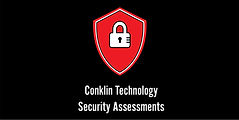
Common Cybersecurity Frameworks
Cybersecurity frameworks refer to defined structures containing processes, practices, and technologies which companies can use to secure network and computer systems from security threats. Cybersecurity frameworks typically take a structured approach to the work of securing digital assets by matching security objectives, like avoiding unauthorized system access with controls like requiring a username and password. A framework is a way of organizing information and, in most cases, related tasks to give security managers a reliable, systematic way to mitigate cyber risk no matter how complex the environment might be.
Cybersecurity frameworks are often mandatory, or at least strongly encouraged, for companies that want to comply with state, industry and international cybersecurity regulations.
The four most common cybersecurity frameworks are –
NIST Cybersecurity Framework
CIS Critical Security Controls
ISO 27001
Payment Card Institute Data Security Standard (PCI DSS)
Successful cybersecurity programs follow a repetitive process to implement and continuously improve the company’s security posture, an example of this is the seven-step program displayed below as part of the NIST framework.




PCI DSS
PCI DSS (Payment Card Industry Data Security Standard) governs the way credit and debit card information is handled. The Standard applies to any organization (regardless of size or number of transactions) that accepts, stores, transmits or processes cardholder data.
Many of these controls deal with the cyber controls related to the transmission and storage of credit card information.
Why Engage CTSA?
CTSA's professional personnel have extensive cybersecurity knowledge, as evidenced by their passing the ISACA Certified Cybersecurity Practitioner (CSX-P) and/or Cybersecurity Audit Certificate (CAC) exams, which will allow them to provide a structured, independent, objective analysis of your company’s cybersecurity program.
Further, CTSA personnel have throughout their careers completed all levels of cybersecurity assessments for companies with cybersecurity risk profiles across the spectrum from simplistic to exceptionally integrated and complex. Using this experience and knowledge all assessments will be tailored to meet your specific requirements based upon the breadth, maturity, and complexity of each customers technology solutions and regulatory requirements.
%20.jpg)